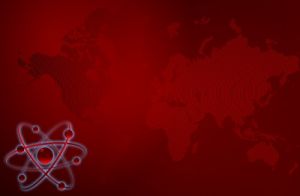A Meeting with the World Leaders

When I think of proposing what steps humanity might take in order to ensure the best future for Life and Earth, it makes me feel so small, relative to the magnitude of the issue at hand. Who am I to propose what is best for the future of others, all Life, and the Earth? For this reason, I must qualify the thoughts I am about to propose, as just one opinion, only to be taken as the reader wishes. Given all the times I have alluded to the idea that we all have our own beliefs, it is difficult to suggest that my beliefs might be more accurate than those of anyone else. Regardless, it is our dreams, our beliefs, and all of our ideas, that help us learn to make the choices that will shape the future. Hence, I humbly put forth my ideas, with the hope that they might offer some keys to finding a bright future for Life and Earth.
Before offering my thoughts, it should be noted that most of them are a product of the analogies presented in this book. In most cases the analogies are related to Nature and to the flow of matter and energy. It is my hope that the analogies have helped make my ideas clearer and more credible. For example, in my discussion on cooperation, I referred to the idea that, as individuals, we might be like raindrops bouncing off an awning, but together, with our cooperative pressure, we might be able to achieve the impossible and break the awning by collecting as a pool on the awning. This might equate to our cooperation leading us to solve a problem such as climate change, whereby it would be impossible for one country to complete such a task on its own. Such analogies as raindrops might seem somewhat simplistic, but if we subtract our egos and sense of self from the equation, then accept that like raindrops we all are also composed of matter and energy, we may find that such analogies are more accurate than they appear at first glance.
After all is said and done, it is easy for any of us to offer our opinions, but the probability of their accuracy is ultimately what matters. With ideas aligned with analogies based on the undeniable flow of the physical universe, that which includes the study of science, I hope the reader will find them interesting and worthy of consideration.
With all that said, what better way to propose a solution, than to pretend we might have a chance to speak to all the world leaders at one time.
A meeting with the leaders of Earth

Can you imagine, if you had one chance to meet with the world leaders, what you would say? If I could express some thoughts to the leaders of the major countries like the U.S.A., Russia, China, Canada, India, Pakistan, the European Union, and so on, I think I might first start by proposing something like this:
"I am sure that as leaders of your countries you all want the best for your people. You want to see your country's values endure, and your economies prosper. I agree that the interests of your countries are important, but before you place all your resources and energies toward achieving your goals of wealth and prosperity, maybe it is a time to question just what it is we want to achieve. Is there another way?
Entirely on the other side of the spectrum, do you want to focus instead on the more global picture of creating an environment where Life and Earth, that which we are all a part of, can endure and prosper? You might recall my example where the human body is considered a great example of cooperation, given that each of its organs (compared to countries), work together in harmony so that the body can endure. Maybe working together, toward the survival of Life and Earth, is the real challenge in this new technological age that we have created, and more of your time and resources that you are spending on your country, might best be allocated to the Earth and the future of all Life.
Will choosing the path to solely serve the interests of our countries, really ensure that we succeed in the big picture? Furthermore, if you care about your legacy in the future, and that includes the welfare of your children, how do you want to be remembered? Will it be only for expanding the borders and ideals of your own country? Or do you want to be remembered for hundreds, or even thousands of years, as the leaders that saved Life and the planet from significant problems due to the side effects of our growing technologies? Will you be remembered as the great leaders that combined your influence, and prevented the planet from experiencing unquestionable instability from human created climate change, or possibly planetary devastation from new generation nuclear weapons? Alternatively, will you be the leaders that are remembered who did not cooperate, and led to the demise of Life and the planet? I am sure, as you have found in life, that quite often we win and get what we want, only to find that we had spent all our time and energy on achieving something that was not what was best for us in the first place. Could it be that countries are just following the primitive script from our past, of competing with each other, and that they do not see that cooperation is our only hope in order to survive the side effects of the technologies that we are about to create in the future? Are we fighting the wrong battle? How can we instead cooperate intelligently and work together, toward a bright future for Life and Earth?"

A new script - Cooperating intelligently
The idea that countries may think that success can only be achieved through their own economies and prevailing beliefs, reminds me of a situation I faced in my early days in school. It was in grade six when I lived in a small town in Ontario. I remember every sports day I would be draped with ribbons for winning various running and field events. I use to pin my white "Third" ribbons, my blue "Second" ribbons, and on rare occasion, my red "First" ribbons all together as one ribbon that would go from my chest to my feet. I was almost the best. I say almost because there was always one other schoolmate, Paul, who could run faster and jump higher that any other student. He was a natural, and he always seemed to get the red "First" ribbons in the main events like the 100-yard dash. He ran like the wind.
I thought that in order to be the best and win, one would only need to be faster than Paul. Then one day I heard that Paul entered the city championships, a collection of all the best athletes in all the schools in the city. I learned later that though Paul was fast, there were a number of boys from other schools that were even faster.
So what is my point in sharing this experience? Well, like the countries of the world, I had my specific and clear-cut idea of what I needed to do to win. Just as a country might have the goal to be the most competitive and have their values strongly instilled throughout their culture, and possibly the world, I wanted to beat Paul. I think though, that sometimes, we only see a small bit of a bigger picture. If we really wish to succeed, there may be much more to it than we may think or be aware of. The problems of the world may be much bigger than we actually see them to be.
Just as when I did not see the big picture, we may be doing the same by overlooking the magnitude of the problems related to the negative impacts from our technologies. I again allude to the idea that if humankind wants to succeed, then countries must accept that the greater challenge for all of us is in determining how we will cooperate intelligently in order to survive the side effects of our technologies. These are side effects that are about to become even more world impacting, such as next generation nuclear weapons, man-made viruses, artificial intelligence, climate change, and the ones to come that we cannot even imagine.
In the end there is only one question. "How will we survive our questionable future?" "Is it best for us to cooperate more, or is it best to compete with each other until our technologies cause uncontrollable threats to Life and Earth?" Ask yourselves, why must we wait until we have a common threat such as an asteroid about to destroy Earth for us to shift our competitive nature to a cooperative one, where it is clear we must work together to survive. The longer that we wait, the more time that we lose, to be preemptive and prepare for the future.
If our real battle is to learn to cooperate intelligently, and look beyond our own economic interests and beliefs, how do we achieve this? In an attempt to answer this question, I have created "A Memorandum for Life and Earth". The following are some key points on which it is founded:
1) We must acknowledge that the side effects of technology threaten Life and Earth
 Clearly, countries must first have reason to cooperate, and that means we must acknowledge that our technologies have set us on a path that is completely divergent from the flow of Nature, that which we have followed since the beginning of Life and Earth. We are walking into unknown territory. Throughout history, countries have fought over economics and beliefs. Up till now though, our technologies were far less impacting, so our wars and conflicts could not impact Life and Earth as they do now. It is important to make it clear that the problem is not in how we, as humans, have changed. In fact, we have not changed much at all. It is a matter of how technology over the last few centuries has come to have a greater impact on Life and Earth. In an example such as North Korea, if nuclear weapons and rocketry did not yet exist, then the global community would have had little concern of any threat from their actions in 2017. It is clearly the growing impact of the side effects of our technologies that is the issue at hand. The world is not the same world as it was. The game of survival cannot be played the same way as it was, because in the past there would always be a winner. With our technologies, we actually threaten the game itself, and it could come to an end, due to our actions.
Clearly, countries must first have reason to cooperate, and that means we must acknowledge that our technologies have set us on a path that is completely divergent from the flow of Nature, that which we have followed since the beginning of Life and Earth. We are walking into unknown territory. Throughout history, countries have fought over economics and beliefs. Up till now though, our technologies were far less impacting, so our wars and conflicts could not impact Life and Earth as they do now. It is important to make it clear that the problem is not in how we, as humans, have changed. In fact, we have not changed much at all. It is a matter of how technology over the last few centuries has come to have a greater impact on Life and Earth. In an example such as North Korea, if nuclear weapons and rocketry did not yet exist, then the global community would have had little concern of any threat from their actions in 2017. It is clearly the growing impact of the side effects of our technologies that is the issue at hand. The world is not the same world as it was. The game of survival cannot be played the same way as it was, because in the past there would always be a winner. With our technologies, we actually threaten the game itself, and it could come to an end, due to our actions.
For us to focus on individual problems related to our technologies, like climate change or nuclear proliferation, is just a bandage and not the solution. What we are facing is a vast array of technologies that will bring upon us changes and threats that we cannot even imagine. We are going into the dark, and the potential impact of what we face may be greater than any natural phenomenon. We must focus on how we face this new threat together, not just deal with the side effects of our technologies on an individual basis. We must work together in a cautious and controlled fashion.

Many might suggest that the benefits of our technologies far outweigh the possible side effects. I want to point out that this assumption goes on the premise that humankind can always find a method to work around any problems. Consider though, that the planet Earth is about 24,000 miles around and it is fixed in size, but the impacts of our technologies are growing geometrically. Hence, if there are side effects greater than the Earth can absorb, Life and Earth may be threatened as if a game coming to an end. To use a comparable example, imagine a game such as chess. Just as we do in life, we make our moves and sometimes we are right and sometimes wrong. Regardless, the game goes on. When we finish, new players can always come to the table. Some side effects though may be so world impacting that they actually end the game. They might destroy the game board. This might be no different than humankind, through improbable combinations of matter and energy, creating a technology such as an advanced nuclear weapon capable of global destruction. Going further, AI, in combination with other technologies, might do the same. It is understood that the positive impact of our technologies will bring great things to humanity, but I think it is making a big assumption to believe that our advances in technology will always be able to preemptively solve dangers related to the side effects of our technologies.
2) We must accept that cooperation between countries is probably our best solution
Given the magnitude of what we may face, it may be that our cooperative efforts are the only way to move forward, and that may require an entirely different type of thinking. We may need to use our combined resources and intelligence, to isolate and deal with the side effects of our technologies. In a way, it might be best understood as if we were in a situation where all countries needed to cooperate in order to contend with aliens, if indeed aliens existed, or an asteroid that might threaten Life and Earth. The type of cooperation between countries that may be necessary now is as if there were three individuals who need to push a boulder up a hill. It is simply impossible for any one individual to push it up the hill. There is ABSOLUTELY only one way to complete the task, and that is for all to cooperate to push it up the hill together. In the history of humankind we have been able to compete to survive, but we may be entering a new age where we MUST cooperate. In the face of the side effects of our unfolding technologies, our thinking may need to be about the planet and the future of all Life, not just our countries and our own beliefs.
One of the greatest problems we will face is making a shift to a cooperative way of interpreting reality then moving forward together, to deal with the threats to Life and Earth that we will face, especially those related to the repercussions from our technologies. For example, artificial intelligence (AI), combined with other technologies, such as our nuclear capabilities, could represent a significant threat to Life and Earth. Many countries will see only the benefits and move forward with little concern of the implications. Other countries will be more cautious and pay greater heed to the potential side effects of such technologies. Our problem is, "how do we get on the same page given that there are risks we cannot imagine ahead of us in the not too distant future?"
3) We must improve our global intelligence of science and apply it to our future
If we are to follow such a cooperative path, and find a common way of interpreting the world, this will require us to be as intelligent as possible. It will be necessary to incorporate science into our education systems - the laws of matter and energy - more than ever before since science is directly related to our growing technologies. It means having accurate data, making it accessible to all, and ensuring that the human species is willing to value it and use it to assist in our interpretation of the physical universe. There is a risk, that in taking a cooperative approach, that diversity, which is essential to survival, may be diminished to unacceptable levels. This means that any cooperative interpretations of the world and decisions that ensue, including ones that rely heavily on science, must be very well thought out, and must contain all fail-safes possible.
4) We must improve our global intelligence of non-scientific beliefs
We must accept that, outside of the laws of physical science such as gravity that we all agree on, that we also have diverse beliefs that are unique to human beings. This human quality can lead to unwarranted conflicts between us, and also prevent us from having a common interpretation and approach to dealing with global issues. Our capacity to imagine and extrapolate, allows us to do amazing things. This makes us unique from other creatures, but at the same time it causes us to find reasons for conflicts not characteristically found in other life forms. Such concepts as, life after death, our many religions, and our virtually infinite pool of ideas of right and wrong, do cause us to have conflicts that may not be warranted. We need to educate ourselves on the benefits, and potential costs, of our unique capacity to create diverse belief systems. Given the risks that we face due to the side effects of our technologies, it is important that we minimize the probability of conflict between us whether it involves individuals, cultures, or countries. This philosophical self-examination of the human species is necessary in order to help facilitate our cooperation, and also enable us to know when scientific beliefs and non-scientific beliefs are warranted. I would strongly suggest that a global education system be created, which, for one, would offer a detailed self-examination of how humankind creates our diverse belief systems.
5) We must create a global education system to convey global intelligence to all
My suggestion is to create a world library, and a global education system, based on both scientific and non-scientific beliefs, to be integrated globally. It could be termed as a "Universal Philosophy", or as a "Global Education System (GES)". There would be many considerations in its implementation, such as how countries and cultures would accept or reject such a knowledge base and education system. It might be made available and offered through the internet, as a complementary tool for global educational purposes, and integrated gradually over time, depending on how various countries felt it would benefit them.
In addition, a body must be created, or current world bodies must be enhanced such as the United Nations, in order to give the inhabitants of different countries the opportunity to access such education. This means an integrated global approach to economics where countries that are less advanced economically, can gain the benefits of economic globalization and global health care. Basic needs, such as a home, security, and good health, need to be fulfilled globally in an adequate fashion. Then all human beings in participating countries would have the time and resources to access the Global Education System. Some of the changes that might follow would be a gradual decline in population (demographic-economic paradox) leading to less pressure on resource consumption on the planet. At the same time, the existing population would be better equipped with the intelligence necessary to make accurate interpretations and decisions, aligned with the interests of Life and Earth.
The objective we would hope to achieve from this globalization of intelligence and economics would be to improve our capacity to deal efficiently with world problems, such as technological side effects. This means global intelligence with regard to, not only our scientific interpretations of the world around us, but also our philosophical understanding of what we are, and how we want to shape the future for Life and Earth.
An example of what might be cooperating intelligently

The previous points are key components to the specific recommendations I have put forth in "My Memorandum to Life and Earth", follows the next section called "The First Step". Before you review the memorandum, I want to offer an example which might help illustrate how we may need to change our way of thinking, and progress toward an intelligent cooperative global way of thinking.
I want to discuss a current day problem we are facing that requires countries to look at the big picture - nuclear proliferation. As you are all aware, our knowledge of nuclear weaponry is advancing exponentially, and it is also becoming much more accessible to all countries on the planet. Understandably, countries such as Iran and North Korea want to develop nuclear weapons in order to strengthen their ability to contend with other countries that might threaten them. Their thinking is not surprising given they see themselves as separate entities. They simply want to be equal players on the world stage, and have the same tools as everyone else. Of course, the dominating nuclear powers such as the U.S.A., Russia, and China only wish to include those countries that will operate under international guidelines. This makes sense as well, in the interest of Life and Earth, hence we have a dilemma. Which countries should be permitted to have nuclear weapons, which should not, and who is to decide on this matter?
Once again, we tend to look at the problem from a specific perspective, as outlined above, but it may be much bigger than this. Consider that the impact of our nuclear weapons is growing, and it can only be expected to continue to grow at an exponential rate. As mentioned, if we combine our nuclear capabilities with artificial intelligence and the development of new strains of life threatening viruses, who knows what we will achieve. Ultimately, imagine that we come to a point where every country, or any specific country, has the technological ability to create an arsenal of weapons that if unleashed could cause complete destruction to all Life. Can we risk this possibility?
This brings us back to the original problem mentioned above. Maybe it is not a matter of WHICH COUNTRIES are permitted to have the ability to create and have nuclear weapons. It may be a question of whether any country should have them at all. If we must use nuclear weapons for other more positive purposes, then maybe our nuclear capabilities need to be managed under one world umbrella. Alternatively, maybe it is a question of whether, through a global agreement, that countries with nuclear weapons should simply be denuclearizing so such weapons do not exist at all. Only through our cooperative efforts, which will require major controls, restrictions, and trust, will the possibility exist that we can denuclearize the planet before we create nuclear weapons of the magnitude that we wish they had never existed. It simply is not just a matter of intent of a country to use them either. If a country with nuclear capabilities has beliefs that contradict other global beliefs, or they simply have an accident, such use of advanced nuclear weapons, combined with other technologies, could have a significant impact on all Life and Earth.
Conclusion of meeting with world leaders
I want to thank you for giving me the time to highlight the magnitude of the problems that may unfold due to the growing side effects of our technologies, and to emphasize the urgency that all countries cooperate intelligently in order to ensure a bright future for Life and Earth. Given the thoughts I have proposed, I now put forth to you my specific recommendations in the next two sections called "The First Step" and "My Memorandum to Life and Earth". Generally speaking, the first step outlines how we might create a "Universal Philosophy" that might help to guide us into the future. The Memorandum centres on how we can intelligently structure a global body, or restructure a body such as the United Nations, that will ultimately have a major influence over the decision-making and planning for the future of Life and Earth. Going further, it also outlines which specific areas need to be focused upon, and offers recommendations on how to implement them. For example, if a basic "Universal Philosophy" could be incorporated into education systems globally, based on both science and philosophy, what considerations might be needed? How would it be accepted by different countries, and how would less privileged countries be supported so that all might have the opportunity for such an education?
I thank you again for the opportunity to meet with all of you.
